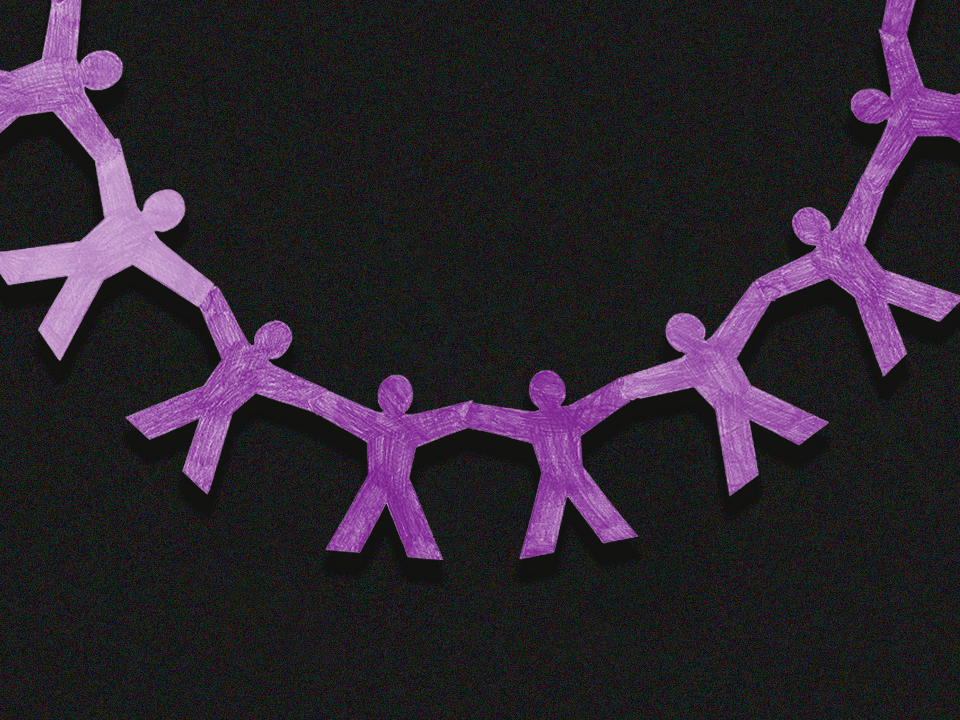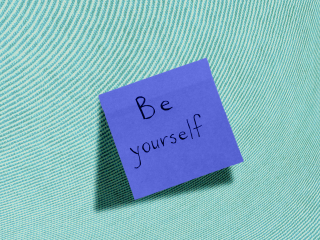
10 Relationship Resolutions That Are Seriously Good for Your Mental Health
Deeper connections, right this way.
Healthy, supportive bonds don’t exactly grow on trees (nor does the energy required to maintain them) so you’re not alone if you’re feeling lonely, disconnected, or socially unfulfilled this holiday season. The good news: You don’t need to overhaul your entire life to notice a positive change in your relationships—or in yourself. There are lots of small but impactful ways to add more connection to your life, deepen your existing bonds, and boost your mental health.
Resolutions this time of year might feel a little cliche, but setting one (or a few) can be a solid excuse to check in on your wants and needs. And who among us doesn’t have a few of those where our relationships are concerned? “A sense of belonging and togetherness is a fundamental human need that we have,” says Miriam Kirmayer, PhD, a clinical psychologist and friendship researcher. So when you’re thinking about what you want more of in 2024, don’t forget about connection.
To help you decide where to start, we asked Dr. Kirmayer about connection-related goals and habits just about anyone could benefit from. Here are a few relationship resolutions you may want to make heading into 2024.
1. I will ask myself how a relationship makes me feel.
We know that the quality of our relationships matter, but what exactly does that mean? While there are plenty of psychological frameworks that get at this question, Dr. Kirmayer points out that our subjective experiences are often more than enough to define it for ourselves. Because, well, if a relationship makes us feel bad, who cares if it’s a textbook definition of a Quality Relationship?
So when it comes to lightly auditing your relationships—whether we’re talking new connections or people you’ve known your whole life—ask yourself: How do you feel when you spend time with this person? “When we tune into that personal question with a certain level of honesty and transparency with ourselves, that provides important data,” says Dr. Kirmayer. “Do you feel supported? Do you feel this is a reciprocal relationship where you and the other person are both invested?”
2. I will make small talk with strangers.
OK, small talk has kind of a bad rep. For a lot of us, it’s surface level at best and awkward at worst, and we’re probably not going to meet our new best friends waiting in line at a cafe. But Dr. Kirmayer says we tend to underestimate the power of a little chit chat. “Even for people who feel very satisfied with the relationships that they do have, small moments of connection with strangers can still add to our sense of community and belonging,” she says.
Furthermore, a small talk habit isn’t only about opening the door to potential connections. It’s also just great practice. “The more you exercise your social and communication skills, the easier it's going to be to invite more connection into your life,” says Dr. Kirmayer.
3. I will tell people why they’re important to me.
Not only is this a small way to give someone else a quick boost, it also helps us tap into the feel-good effects of gratitude. “Expressing gratitude has been shown to increase relationship satisfaction and overall well-being,” says Dr. Kirmayer. “If we spend time thinking about what we’re grateful for in our relationships, it can help us feel closer to the people around us and ease feelings of loneliness.”
If words of affirmation aren’t someone’s cup of tea, Dr. Kirmayer notes that you don’t have to actually tell the other person to reap the benefits of gratitude in your relationships. It’s still worthwhile to reflect on what someone means to you or jot down what you’re grateful for in a journal.
4. I will spend more time creating new memories than reflecting on old ones.
While there’s nothing wrong with a little nostalgia, focusing too much on the past is an easy way to lose sight of the reality of a relationship in the present—and your present bond might not be as active. “It’s helpful to check in: Do I have fun with this person? Do we even actually spend time together? Is there a relationship that's actually playing out here or is it rooted in the connection we shared in the past?”
If you realize that some of your relationships are feeling more passive than active, Dr. Kirmayer suggests creating new experiences, whether that’s trying different activities together or swapping out old traditions with some new ones.
5. I will change the subject when I’m uncomfortable.
If you’ve ever wanted to unsubscribe from a conversation as it was happening, we see you. But also, did you know you can literally do that? “We’ve all found ourselves in conversations where we don't feel comfortable and yet we continue to participate due to a feeling of obligation or because we’re fearful of being assertive, making things awkward, or hurting someone,” says Dr. Kirmayer. And while this might not work with your boss, it’s worth thinking about how you can politely exit conversations that range from annoying to legit triggering.
Dr. Kirmayer encourages changing the subject in the moment or setting a larger boundary around certain topics, like body image, food, family, or other potential triggers. “You can always say something like, ‘I'm really working to limit my own self-talk about that topic. So can we switch the conversation to something else?’ or reiterate, ‘As I've mentioned before, that's not something that I'm comfortable talking about,’” says Dr. Kirmayer.
6. I will let myself feel envious of others.
We’ve all been there: Something awesome happens to someone you love and instead of feeling amazing and happy for them, you feel awful and horrible for yourself because ugh, why can’t you have that? And then you feel like the worst person alive. But instead of beating yourself up or swallowing that feeling down, try your best to recognize and normalize it instead.
“Envy is a normal human emotion that we all experience akin to sadness, anger, joy, happiness, or anxiety, and it’s not at odds with your ability to be a good friend, partner, et cetera,” says Dr. Kirmayer.
To put that mindset into practice, get in the habit of naming your envy when it comes up. Dr. Kirmayer recommends using “both/and” language. For example, you can tell yourself, “I’m both thrilled that my partner got a promotion, and really envious because I’ve been feeling so stuck in my own career.” Or even more simply, “I am happy for them and sad for me. Both can be true.”
7. I will speak up if something doesn’t work for me.
Lots of people think a healthy relationship is one without any disagreement, or they’d simply rather keep the peace than face conflict head-on. “Very often we let things go unexpressed out of fear of conflict, but we want to be able to manage and navigate that conflict together,” says Dr. Kirmayer.
As with other social and communication skills, practice helps, even if it’s something low-stakes like speaking up instead of going with the flow when your partner picks a restaurant you don’t like. You can step it up from there. “What are the topics that you tend to avoid? What opinions do you keep to yourself?” asks Dr. Kirmayer. “How can you be more open about how you feel and what you really need in a relationship?”
8. I will protect my alone time.
Vowing to spend more time by yourself might sound like the opposite of a relationship resolution, but we all need alone time for our connections to thrive. Solo time gives us space to reflect and decompress, which in turn can provide you with the bandwidth to make you a better friend, partner, parent, or all-around person to know.
“Very often we worry that if we express our desire for alone time, it makes us a ‘bad’ friend or partner,” said Dr. Kirmayer. “But our need for alone time is not at odds with healthy relationships. In fact, it's at the heart of them.”
9. I will cut back on gossip as a form of bonding.
There’s no denying that gossip can be a uniquely satisfying way to connect, and I’m certainly not here to tell you to go cold turkey. It’s worth asking, though, whether your gossip habit might be a stand-in for other healthier forms of bonding that may lead to deeper, more authentic relationships.
“Part of why we tend to relish gossip is because those conversations are often very intense moments of connection,” says Dr. Kirmayer. “So we can recognize the function that it serves, take it as a signal we want to connect with the person sitting in front of us, and steer the conversation into a different direction to learn more about their experience and share our own.”
10. I will embrace how my people and I have changed.
Just like relationships evolve over time, so do we as individuals—but how often do we “get to know” old connections the same way we do new people? If the answer is “not often,” it’s never too late. Just use present-focused language to ask things like, “What are you really interested in these days?” or “Have you tried anything new in your spare time recently?”
“Asking those types of questions can actually bring a sense of newness to even our oldest relationships,” says Dr. Kirmayer. She also points out it never hurts to ask directly, “How have you changed in ways that I haven’t noticed yet?”
On the other side of the coin, we should also dig into those questions for ourselves and communicate the answers so we can continue to show up as our authentic selves in relationships. “In order for friendships to feel very fulfilling, we need to feel as though we are seen and accepted for who we are at this point in our lives,” says Dr. Kirmayer.
Wondermind does not provide medical advice, diagnosis, or treatment. Any information published on this website or by this brand is not intended as a replacement for medical advice. Always consult a qualified health or mental health professional with any questions or concerns about your mental health.




